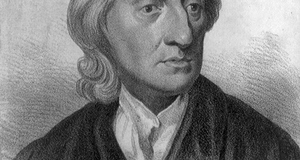Theories of Multicultural Toleration: An Examination of Justice as Fairness and Political Theology
By
2014, Vol. 6 No. 03 | pg. 4/4 | « A Comparison of Schmitt and Rawls on Multicultural TolerationThe viewpoints on multicultural toleration taken by John Rawls and Carl Schmitt in their work appear to conflict with one another. Multicultural toleration would seem to be the natural result of the theory of justice as fairness, as Rawls aims to create a society based around social cooperation and toleration. Rawls’ idea of a well-ordered society can be seen as conditional upon multicultural toleration to truly exist because social cooperation is one of the essentials of a truly just society. (Rawls, 2001: 7) In contrast, multicultural toleration is largely presented as a fallacy by Schmitt in that it would always be dependent on the sovereign decision. In Rawls’ theory the nature of the state is largely decided and legitimated through the conception of political justice agreed upon by society. When Schmitt’s viewpoint is applied, multicultural toleration largely exists on the whim of the state but this toleration is merely a façade as the sovereign will always be biased towards a particular group in making the sovereign decision. The exception shows the decision and the sovereign at its root because ultimately it will show that the sovereign will support the values that it is interested in rather than those of others in society. This is different than Rawls’ conception of the state as decisions in the model of justice as fairness must follow the principles of justice, ensuring a sense of tolerance for all groups. Another point of contrast between the theories of Schmitt and Rawls is in the way that the basic institutions of the state are created, and the manner in which these institutions affect multicultural toleration. Schmitt views basic institutions of the state as secularized theological concepts, meaning that every part of the modern state has a theological origin. (Schmitt, 1985: 38) This poses a problem for multicultural toleration because since the state has a theological origin, it will reflect the interests of the theology that was secularized to create it at the expense of opposing views. The mechanisms of the state would end up being biased towards groups that share its interests, and this is a situation that is incompatible with multicultural toleration. In this environment, true multiculturalism could never exist as one group would always have its interests elevated above the rest of society in the passing of the sovereign decision. On the other hand, Rawls understands the basic institutions and mechanisms of the state as the “basic structure” and the purpose of it is to secure background justice for society. (Rawls, 2001: 10) Rawls’ basic structure of society is not saddled with the bias resulting from a theological origin. Instead, the basic structure is regulated by the principles of justice agreed upon under the veil of ignorance. (Rawls, 2001: 18) The veil of ignorance is designed by Rawls to ensure that the interests of all groups are represented fairly in the hopes that an agreement can be made on principles of justice that can capture the overlapping consensus. Therefore, the basic structure of society is congruent with multicultural toleration as it is created under conditions that are fair to all groups through the principles of justice. (Rawls, 2001: 18 ) Under this basic structure, the state is unbiased and committed to ideals of toleration associated with multiculturalism. For multicultural toleration to properly exist, it must be a part of the normative situation of a given society. Rawls and Schmitt have differing ideas on how the norm is decided upon and legitimated in society. The idea of the normal situation is important to multicultural toleration because it ensures the conditions required for multicultural toleration exist on an everyday basis in the state. Under Rawls’ conception of justice as fairness, the normal situation is created by the political and social institutions that make up the basic structure. (Rawls, 2001: 10) Since the basic structure is concerned with ensuring “background justice” in society, it also is charged with ensuring that multicultural toleration is proliferated as a normal situation in society. (Rawls, 2001: 10) Because the basic structure is regulated by the principles of justice, the basic structure must then be structured to ensure multicultural toleration is a societal norm. Rawls is very clear that in order to achieve a well-ordered society, multicultural toleration and social cooperation are necessarily present in the principles of justice and this makes it part of the norm as these principles regulate the normative basic structure of society. Schmitt takes an opposing view, believing that the normal situation is dictated only by the sovereign. (Schmitt, 1985: 13) According to Schmitt, a legal order requires a normal situation to exist. (Schmitt, 1985: 13) Furthermore, all law is situational law to Schmitt and the sovereign has a monopoly over creating the situation, making the sovereign the authority over how law is applied. (Schmitt, 1985: 13) Essentially, multicultural toleration in Schmitt’s state is wholly conditional on the sovereign. While the sovereign could attempt to implement a multicultural state, it could never truly endorse multicultural toleration as it still has a monopoly over the decision. In the event that a decision needed to be made between the beliefs of the sovereign and the views of another group, the views of the sovereign would ultimately win by the virtue of sovereign power. There would be no guaranteed liberties in Schmitt’s state, as all of them would be conditional on the sovereign decision and potentially taken away to deal with the exception. This possibility for oppression is not congruent with a state that includes multicultural toleration.While Schmitt can be perceived as taking a pessimistic stance towards multicultural toleration, Rawls takes a much more positive stance through his principles of justice as fairness. Firstly, the principles of justice as fairness that Rawls lays out convey ideals that are congruent with multicultural toleration. Specifically in his first principle, he protects the basic liberties and freedoms of all groups equally. (Rawls, 2001: 42) These liberties ensure a degree of tolerance as each group has protection of their basic liberties regardless of whether they are the majority or minority. (Rawls, 2001: 42) Most importantly, Rawls makes these rights indefeasible as they cannot be taken away under any circumstances. This is critical because multicultural toleration means nothing if it does not persist in the case of an emergency. An emergency is when diverse viewpoint are most likely to clash, and Rawls’ first principle ensures that groups will not have their liberties threatened or taken away during a potential exceptional circumstance. This ensures the preservation of multicultural toleration and protects groups from oppression by the majority or the state using the emergency for justification. In Schmitt’s view when a decision needs to be made between the dominant values of the sovereign and any conflicting views, the sovereign values would win out. This would go against any sort of pure and real multicultural toleration as it would allow for potential oppression of groups not sharing the view of the sovereign. While a similar scheme of basic liberties could fit within Schmitt’s conception of the state, they would not be indefeasible because they would recede just like the rest of the law in the case of the exception. When Schmitt’s theory of the emergency and the exception is applied to multicultural toleration, it is clear that he would believe true multiculturalism could never exist in the state because multiculturalism would always be conditional on the decision made by the sovereign. One of the problematic aspects of liberal democratic society is in how it deals with the controversial issues where positions are so entrenched that no consensus can easily be reached. Issues such as abortion are particularly poignant examples of this type of moral debate, and resolution of some kind is needed to ensure that such issues do not cause a great deal of societal tension. This makes it a particularly relevant point of comparison between Rawls’ and Schmitt’s conception of multicultural toleration by looking at how they would deal these conflicting viewpoints that exist in a multicultural society. Rawls’ uses abortion as an example of this type of debate because of the many entrenched viewpoints associated with it, and acknowledges that divisive issues can challenge social cooperation and toleration. (Rawls, 2001: 117) These types of issue pose an interesting problem in the Rawlsian conception of the state, as they do not necessarily conflict with the accepted political conception of justice, but are comprehensive issues not easily ignored by the populace. In order for the multiplicity of viewpoints to be properly addressed while maintaining social cooperation and tolerance, Rawls believes it necessary to appeal to political values in dealing with a comprehensive debate that borders on a constitutional essential. (Rawls, 2001: 117) According to Rawls, the way to do this is by attempting to reach a free agreement through clear and understandable discussion. (Rawls, 2001: 117) If one cannot be reached, Rawls simply hopes that people can set aside their differences to focus on the political conception of justice, and that “slippage” through the generations will soften these differences. (Rawls, 2001: 193) This is a good example of Rawls’ viewpoint on multicultural toleration, as he believes that the political conception of justice can ensure a level of tolerance on even the most divisive issues through clear and measured discussion using the agreed conception of political justice. (Rawls, 2001: 193) In comparison to Rawls’, Schmitt would view debates on divisive topics such as abortion as simply another decision to be made by the sovereign. In addition, similar issues that could cause serious societal tension would most likely be considered to be exceptions by the sovereign. Schmitt would view a strong sovereign decision as a solution to this type of issue by keeping the state strong and free from conflicting views. This is a stark contrast to Rawls’ belief that difficult issues can be settled through thoughtful and clear discussion using the agreed political conception of justice. Schmitt’s philosophy demonstrates his interpretation of multicultural toleration, as difficult moral debates would be deemed to be an exception and a threat to the state, with a sovereign decision being the answer to this problem. Since these types of debates are largely unavoidable in a diverse society, this demonstrates Schmitt’s belief that tolerance is not possible because groups holding different viewpoints are a direct threat to the state. Again, multicultural toleration in Schmitt’s state can only exist at the will of the sovereign, and could only exist as long as it is not deemed to be the source of an exception. How Schmitt and Rawls deal with the divisive issues that come along with any sort of multicultural toleration provides a useful gauge of their view on multicultural toleration altogether. On the whole, Rawls’ conception of multicultural toleration is easily applicable to the modern liberal democratic state. In the modern liberal democratic state, citizens are allowed to keep their own beliefs as long as they endorse the legitimacy of the state and its laws. This is similar to Rawls’ theory of the comprehensive doctrine and the political conception of justice, and this system allows for a large but imperfect toleration of multiculturalism. This multicultural toleration has indeed led to a broad social cooperation in the vein of what Rawls’ conceives of. Rawls’ principles of justice as fairness are also relevant, with his first principle being reminiscent of the basic liberties and civil rights presently afforded in the constitutions of many states. However, these rights are not bargained for under a “veil of ignorance” and largely come into being through the government deliberation and deciding on which rights should be protected. This is much closer to the Schmittian decision than it is to Rawlsian theory as most groups in a multicultural society do not have any influence over this process, and inevitably some groups will hold different views on what basic liberties and core values need to be protected. In the event that the core values of a state of challenged, measures such as a constitution are used to justify and protect the core values over any different conceptions. This can be viewed as an element of the sovereign decision at work in the modern impersonal state, where constitutions are a tool used to make decisions on divisive issues that challenge the state. While Rawls’ conception of multicultural toleration is still much more relevant to modern liberal democratic society, Schmitt’s conception of the sovereign decision is still pertinent at the core of how multicultural toleration exists in the modern liberal democratic state. Multicultural toleration remains extremely important to the functioning of the modern liberal democratic state. It seens probable that most citizens who grow up in this type of state would choose to aspire to John Rawls’ relatively optimistic conception of multicultural toleration, and this ideal can be seen reflected in many ways in liberal democracy. Undoubtedly, social cooperation and a belief in tolerance are a virtue in any state, and one that is a worthy aspiration. However, elements of Carl Schmitt’s decisionist viewpoint are also visible at the core of liberal democracy, and will likely remain no matter how attractive any alternative is. This element of the decision makes it impossible to say that pure toleration of multicultural toleration can or ever has existed liberal democracy. This debate is one that is of critical importance to liberal democracy because of the way in which it affects every part of the state as well as its citizens. John Rawls and Carl Schmitt provide two very different but compelling accounts of multicultural toleration, and the contrast that can be seen in their theories helps to provide a lens into this complex and ceaseless debate. AcknowledgementsThe author would like to thank Matthew McManus at York University for his advice and guidance during the writing of this article. ReferencesDewing, M. (2009). Canadian Multiculturalism. Ottawa: Library of Parliament. Merriam-Webster. (2013). Webster's Third New International Dictionary. Merriam-Webster. Rawls, J. (2001). Justice as Fairness: A Restatement. Cambridge: The Belknap Press of Harvard University Press. Schmitt, C. (1985). Political Theology: Four Chapters on the Concept of Sovereignty. Cambridge: The MIT Press. Suggested Reading from Inquiries Journal
Inquiries Journal provides undergraduate and graduate students around the world a platform for the wide dissemination of academic work over a range of core disciplines. Representing the work of students from hundreds of institutions around the globe, Inquiries Journal's large database of academic articles is completely free. Learn more | Blog | Submit Latest in Philosophy |
















